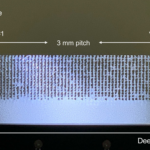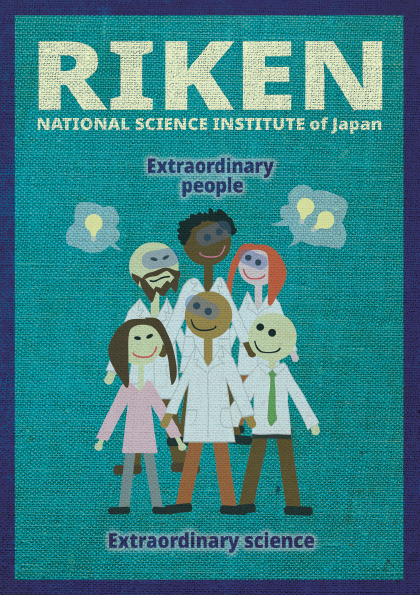Recently, I posted part 1 of a conversation with Thomas McHugh of the RIKEN Center for Brain Science (CBS) in Japan. To recap, the conversation was not with me, but was with Kaoru Takeuchi, an ex-physicist turned science writer who, you can imagine, also owns and tends bar in Tokyo with his cat Pickles. They spoke about a variety of topics related to memory, in an imaginary Tokyo bar with smooth jazz music playing in the background. So sit back, relax, turn on some smooth jazz, and get ready for part 2, which picks up after a discussion about the hippocampus and different kinds of memory.
Emotions and memory
Takeuchi: My understanding is that memories are associated with strong emotions, such as feelings of happiness or sadness, and the vividness of the memory. Do you think the strength and vividness of a memory is related to the emotion felt at the time?

Do strong emotions help us remember events? The evidence remains unclear despite our “common sense”. Images are a few of Nikola the android’s (creepy) emotional expressions. You can read more about him (it) here.
McHugh: One study of strong emotions and memories is called flashbulb memory. It was about incidents and accidents that have a major social impact and the memories of such events. For example, shortly after the terrorist attack on the World Trade Center in Manhattan on September 11, 2001 (“9/11”), several psychological research groups collected and reported data on incidents and memories. In one such study, conducted by a group at Duke University, researchers asked 54 students the day after the attacks, “Where were you on the morning of September 11, when the attack happened? What were you doing?” In parallel, they also asked students about their daily memories immediately prior to the event to compare flashbulb memory with normal memory. The same questions were then asked after periods of 1, 6, and 32 weeks later to observe whether the participants’ memories had changed. What emerged from this study was that, in fact, memories about daily life and about 9/11 faded and became less accurate over time in the same way, even though the students reported that they could “recall vividly” their memories of 9/11. Actually, in some cases, not only did the participants forget details such as who they were with at the time of the incident, but they also added “new memories” that they had not reported immediately after the incident. Even if the person was convinced that they still remembered the incident vividly, in reality, the memory was unstable and had changed over time.
Takeuchi: Does this mean that no correlation exists between strong emotions and memories?
McHugh: Actually, the debate is split. There is a research study on 9/11 and memory conducted by another research group. They used fMRI to measure brain activity in recalling the event in two groups of people: those who were near the World Trade Center (WTC), or in Manhattan, at the time of the event, and those who were in Midtown, an area of Manhattan at a fair distance from the WTC. The hippocampus was still active in both groups as it is responsible for memory recall; however, there was a significant difference between the two groups.

An amygdala infographic. Memories with strong emotions involving the amygdala (the green “bean” in the image) seem to be more strongly imprinted in the brain.
Only in the group that was in Manhattan at the time was the brain region called the amygdala active in addition to the hippocampus. The amygdala is thought to integrate information about emotions. As for the accuracy of the memory—but not the strength of the memory or the “vivid memory” of details such as scenes, smells, and sounds at the time—it has been reported that memories with strong emotions involving the amygdala are more strongly imprinted. It is an undeniable fact that we remember more details of frightening or traumatic experiences than normal everyday happenings.
Takeuchi: I see. So, there are differences depending on the area of the brain involved in the memory. It seems that people who were in mainland United States during 9/11 have more vivid memories of that day than those who were in Japan at the time. As for the Great East Japan Earthquake of 2011, which was also a painful event, many people who were in Japan at that time may remember the event in detail with strong emotions or have a vivid recollection of that day.
McHugh: However, the fact is that in addition to one’s memories and emotions at the time the event occurred, information acquired later through television and media can also be added to the memory. Recent research suggests that many of the details of these vivid memories associated with strong emotions may have been added later to convince oneself that the event actually happened, even if it did not.
Writing, re-writing, and over-writing memories
Takeuchi: So, in other words, we are constantly changing and editing our memories stored in our minds.

Just like files on your hard drive, memories can be changed and overwritten. Unfortunately, the brain does not have version control (that we know of) and altered memories cannot be reset to a previous (original) version. Except in scifi.
McHugh: That is correct. So the big question that arises is: what is the true nature of memory in the first place? Researchers have been conducting research based on the idea that there must be “traces” of memory in the brain, and what has become clear from studies on mice and other animals is that memory traces are the activity patterns of specific groups of neurons in the brain. This is called a memory engram. The theory has been established that memory recall is nothing more than reactivation of the activity pattern of a specific group of neurons in a specific neural circuit as a memory trace, which means that memories can be rewritten by modifying this neural circuitry. Moreover, the fact that the process of remembering activates once again circuits that were active in the past means that, in a sense, past memories become “present” and therefore can be updated. A memory can be rewritten into a good memory; in contrast, if another memory is mixed in with a past memory that is in an updatable state, one may become vulnerable to a feeling that one experienced something that did not actually happen and that this new memory is correct. Even the memories that we believe are “correct” are readily shifting and ambiguous.
Takeuchi: In other words, does the act of “remembering” make the memory become fuzzy?
McHugh: Exactly. For example, if a mouse is asked to recall a memory and then given a drug that inhibits the production of new proteins, the memory is forgotten. However, if the same drug is given to the mouse when it is not recalling a memory, it has no effect on the memory. In other words, the process of remembering itself makes the memory delicate and fragile. Memories are usually edited, updated, and associated with whatever we are currently experiencing. For example, suppose we have had an experience in the past that is similar to what we are experiencing right now. Then our brain will try to find commonalities between the present and past experiences, that is, common principles that we need to recall. But as a result, our memories of the past and the present can get mixed up.
Takeuchi: It seems to me that this would be somewhat of a big issue. As with witnesses in court testifying from memory, for example…

Eye witness testimony is actually not very reliable because memories can be updated and rewritten after the fact.
McHugh: Yes, this is a big problem. At least in the U.S., eyewitness testimony is considered the most important evidence, but it is probably the evidence with the most holes when it comes to testimony that relies on memory because the storage and recall of human memory is not at all like storing data on a computer.
Takeuchi: I now understand that memory is not fixed and that it is also very fuzzy and rewritable. But in the midst of all this, we are constantly repeating the act of remembering new things every day, aren’t we? There is always new information coming in from the outside world that is new to the brain, and even if a little hazy, there are already traces of past memories in our brains. We can compare the present with past memories, and we can refer to past memories when we think. It is rather wondrous, when you think about it, that we can properly distinguish between our internal and external selves.
McHugh: This is a very interesting point. Indeed, usually what we perceive and experience in the present moment is not affected by the memories we are recalling. In other words, the brain has the ability to distinguish between external information from the world outside of us and internal information generated within us. How these are distinguished in the brain, however, is not well understood. This is outside my area of expertise, but there is one theory suggesting that a condition in which the wall separating the two is broken down and the system in the brain that distinguishes between internal and external things does not function well can lead to the onset of some mental illnesses. Another theory is that the dreams we have while sleeping break down that wall a bit. Our dreams can sometimes feel like we are experiencing them as external events, even though we are creating them internally ourselves, don’t you think?

We can distinguish between information from the world around us and internal information, like memories, that we generate within us. But how the brain can do this remains unclear.
Takeuchi: It is an interesting hypothesis that seems to override our commonly held concept of dreams. Is the ability to distinguish between the inside and outside a higher function unique to humans, the relationship between defects in that function and brain psychiatric disorders, what waking and sleeping mean to the brain, what consciousness is, what the unconscious is, and what the mind is all about… the field is expanding rapidly from just memory research.
Life, research, and deep thoughts: the Zen of McHugh
Takeuchi: You have experienced working at research institutions including universities in both Japan and the U.S. When you compare the two, do you notice any major differences, such as the ease of conducting research, or any difficulties?

Working at RIKEN, including RIKEN CBS, is bit different that working at other Japanese institutes or universities because of its international perspective.
McHugh: I think there are differences between countries. I do not think these are particularly good or bad, just different. The laboratory is a place where researchers and students of various origins and cultural backgrounds gather, and so I have heard many different opinions besides my own experiences. No matter what country you study in, everyone is either satisfied or dissatisfied with something and has to deal with little annoyances, and people are creatures who love to complain (laughs). As for RIKEN CBS, I think it is a little different from many Japanese research institutes because it has had an international perspective since its establishment and operates in a style similar to the U.S. Because of this, I feel that working here is much the same as working at an American or European research institution.
Takeuchi: How many people are in your lab?
McHugh: The lab has gradually grown over time—currently we have about 15–16 members.
Takeuchi: That is fairly big. How do you interact with your lab staff?
McHugh: I try to spend about half of my time in the lab talking to everyone. In addition to chitchat and small conversations, I have a one-on-one meeting every morning for about 30 minutes. I talk weekly with the master’s and doctoral students, in particular, to make sure my attention is focused on them. I communicate bi-weekly with senior staff and technicians, including the postdoctoral fellows.
Takeuchi: I see! I imagine that such work is the role of newer researchers and technicians, but you are doing it yourself. Have you learned any tips for conducting your research or do you find any meditative meaning in it?
McHugh: It depends on the experiment of course, some require constant focus or attention to small detail, but others can be more routine or repetitive. It is important to balance these in your work if possible, the first type can be tiring, but the second can be relaxing or meditative, I often feel that the hour or so I spend working on mouse breeding in the morning is my moment of Zen for the day.
Takeuchi: As a hardworking scientist in Japan and the U.S. who is also educating newer researchers and students, do you have any advice for young people around the world who are undecided about their career choice or who are about to enter a career in science?
When considering a career, particularly in science and particularly research, everyone should ask themselves “Do I really want to do this?” It’s important to think carefully and consider the reality of what life is like in a research career.
McHugh: I would tell them, “You should pursue what you are honestly and sincerely interested in.” I think this applies to any profession, including science. In my case, I chose basic research as my profession, and I am satisfied and at the same time feel very blessed with my current situation, in which I am able to work based on my own interests and curiosities on a daily basis.

When considering a career, particularly in science and particularly research, everyone should ask themselves “Do I really want to do this?” It’s important to think carefully and consider the reality of what life is like in a research career.
Takeuchi: That is very important indeed—how to proactively find fulfillment and purpose in one’s life. And you are satisfied with your path as a researcher.
McHugh: If you are lucky, pursuing a career as a researcher can lead to independence and laboratory leadership in one’s late 30s, but of course, in many cases, you will be unable to run your own laboratory. Compared to working for a typical company, it takes longer to become a leader, and it is also a more competitive and difficult path to follow. You still need to have a strong desire to put your time and passion into your work. So, my advice, which is not pessimistic but rather realistic, is that you should ask yourself, “Do I really want to do this?” And if you do not feel that is really the case after taking time to think it through, that is okay. When I look at the students who come to me, they are all very intelligent. They have gone to great high schools, universities, and graduate schools, and they have been educated at a high level. I think these smart young people can find many jobs that pay well, give them freedom, and give them a life that is less painful than trying to be the PI of a laboratory. I do not think it is necessary to view choosing that option as a setback. Life can be seen as a process of filling the various boxes inside you with satisfaction and happiness. Since you have a high-level education, a smart brain, and can work even harder, I believe that you lead a fulfilling life even if you choose another career path.
Takeuchi: I see. So, when you look at the bigger picture of life, it is up to each person to decide which paths to take and from where to find fulfillment. There are many ways to be happy and to make oneself happy. In that sense, I believe your exploration of the brain and memory, one of your lifelong passions, will continue, but what is the biggest question that you definitely want to find in your career as a researcher?

If pursuing the answers to questions about the basic nature of the universe and being human fill you with a sense of happiness and satisfaction, maybe you too would be happy in a scientific research career. Or Philosophy.
McHugh: I would be happy if I could answer the big question of how our brain makes memories. Although great strides have been made in memory research over the 25 years or so that I have been doing research, I am not yet satisfied with the answers we have obtained thus far. We know from our own experience and others that memory is a complex process. During our lives, we humans experience things and remember them. In some cases, these are retained for a long period of time, while in others, they are quickly forgotten. What are the physical and physiological reasons causing the difference? In addition, some memories can be recalled very vividly, while others are blurred and can only be recalled in fragments. What is the difference between these two types of memories, and what is the difference in the phenomena taking place in the brain? I will continue to devote myself to understanding the basic neurological system of how memories are formed and stored in the brain. This will bring me a little closer to understanding the origins of life and human beings, which I have thought about since I was a child, and will reach a very important goal in my mind. ??????
Emotions and memory
Takeuchi: My understanding is that memories are associated with strong emotions, such as feelings of happiness or sadness, and the vividness of the memory. Do you think the strength and vividness of a memory is related to the emotion felt at the time?

Do strong emotions help us remember events? The evidence remains unclear despite our “common sense”. Images are a few of Nikola the android’s (creepy) emotional expressions. You can read more about him (it) here.
McHugh: One study of strong emotions and memories is called flashbulb memory. It was about incidents and accidents that have a major social impact and the memories of such events. For example, shortly after the terrorist attack on the World Trade Center in Manhattan on September 11, 2001 (“9/11”), several psychological research groups collected and reported data on incidents and memories. In one such study, conducted by a group at Duke University, researchers asked 54 students the day after the attacks, “Where were you on the morning of September 11, when the attack happened? What were you doing?” In parallel, they also asked students about their daily memories immediately prior to the event to compare flashbulb memory with normal memory. The same questions were then asked after periods of 1, 6, and 32 weeks later to observe whether the participants’ memories had changed. What emerged from this study was that, in fact, memories about daily life and about 9/11 faded and became less accurate over time in the same way, even though the students reported that they could “recall vividly” their memories of 9/11. Actually, in some cases, not only did the participants forget details such as who they were with at the time of the incident, but they also added “new memories” that they had not reported immediately after the incident. Even if the person was convinced that they still remembered the incident vividly, in reality, the memory was unstable and had changed over time.
Takeuchi: Does this mean that no correlation exists between strong emotions and memories?
McHugh: Actually, the debate is split. There is a research study on 9/11 and memory conducted by another research group. They used fMRI to measure brain activity in recalling the event in two groups of people: those who were near the World Trade Center (WTC), or in Manhattan, at the time of the event, and those who were in Midtown, an area of Manhattan at a fair distance from the WTC. The hippocampus was still active in both groups as it is responsible for memory recall; however, there was a significant difference between the two groups.

An amygdala infographic. Memories with strong emotions involving the amygdala (the green “bean” in the image) seem to be more strongly imprinted in the brain.
Only in the group that was in Manhattan at the time was the brain region called the amygdala active in addition to the hippocampus. The amygdala is thought to integrate information about emotions. As for the accuracy of the memory—but not the strength of the memory or the “vivid memory” of details such as scenes, smells, and sounds at the time—it has been reported that memories with strong emotions involving the amygdala are more strongly imprinted. It is an undeniable fact that we remember more details of frightening or traumatic experiences than normal everyday happenings.
Takeuchi: I see. So, there are differences depending on the area of the brain involved in the memory. It seems that people who were in mainland United States during 9/11 have more vivid memories of that day than those who were in Japan at the time. As for the Great East Japan Earthquake of 2011, which was also a painful event, many people who were in Japan at that time may remember the event in detail with strong emotions or have a vivid recollection of that day.
McHugh: However, the fact is that in addition to one’s memories and emotions at the time the event occurred, information acquired later through television and media can also be added to the memory. Recent research suggests that many of the details of these vivid memories associated with strong emotions may have been added later to convince oneself that the event actually happened, even if it did not.
Writing, re-writing, and over-writing memories
Takeuchi: So, in other words, we are constantly changing and editing our memories stored in our minds.

Just like files on your hard drive, memories can be changed and overwritten. Unfortunately, the brain does not have version control (that we know of) and altered memories cannot be reset to a previous (original) version. Except in scifi.
McHugh: That is correct. So the big question that arises is: what is the true nature of memory in the first place? Researchers have been conducting research based on the idea that there must be “traces” of memory in the brain, and what has become clear from studies on mice and other animals is that memory traces are the activity patterns of specific groups of neurons in the brain. This is called a memory engram. The theory has been established that memory recall is nothing more than reactivation of the activity pattern of a specific group of neurons in a specific neural circuit as a memory trace, which means that memories can be rewritten by modifying this neural circuitry. Moreover, the fact that the process of remembering activates once again circuits that were active in the past means that, in a sense, past memories become “present” and therefore can be updated. A memory can be rewritten into a good memory; in contrast, if another memory is mixed in with a past memory that is in an updatable state, one may become vulnerable to a feeling that one experienced something that did not actually happen and that this new memory is correct. Even the memories that we believe are “correct” are readily shifting and ambiguous.
Takeuchi: In other words, does the act of “remembering” make the memory become fuzzy?
McHugh: Exactly. For example, if a mouse is asked to recall a memory and then given a drug that inhibits the production of new proteins, the memory is forgotten. However, if the same drug is given to the mouse when it is not recalling a memory, it has no effect on the memory. In other words, the process of remembering itself makes the memory delicate and fragile. Memories are usually edited, updated, and associated with whatever we are currently experiencing. For example, suppose we have had an experience in the past that is similar to what we are experiencing right now. Then our brain will try to find commonalities between the present and past experiences, that is, common principles that we need to recall. But as a result, our memories of the past and the present can get mixed up.
Takeuchi: It seems to me that this would be somewhat of a big issue. As with witnesses in court testifying from memory, for example…

Eye witness testimony is actually not very reliable because memories can be updated and rewritten after the fact.
McHugh: Yes, this is a big problem. At least in the U.S., eyewitness testimony is considered the most important evidence, but it is probably the evidence with the most holes when it comes to testimony that relies on memory because the storage and recall of human memory is not at all like storing data on a computer.
Takeuchi: I now understand that memory is not fixed and that it is also very fuzzy and rewritable. But in the midst of all this, we are constantly repeating the act of remembering new things every day, aren’t we? There is always new information coming in from the outside world that is new to the brain, and even if a little hazy, there are already traces of past memories in our brains. We can compare the present with past memories, and we can refer to past memories when we think. It is rather wondrous, when you think about it, that we can properly distinguish between our internal and external selves.
McHugh: This is a very interesting point. Indeed, usually what we perceive and experience in the present moment is not affected by the memories we are recalling. In other words, the brain has the ability to distinguish between external information from the world outside of us and internal information generated within us. How these are distinguished in the brain, however, is not well understood. This is outside my area of expertise, but there is one theory suggesting that a condition in which the wall separating the two is broken down and the system in the brain that distinguishes between internal and external things does not function well can lead to the onset of some mental illnesses. Another theory is that the dreams we have while sleeping break down that wall a bit. Our dreams can sometimes feel like we are experiencing them as external events, even though we are creating them internally ourselves, don’t you think?

We can distinguish between information from the world around us and internal information, like memories, that we generate within us. But how the brain can do this remains unclear.
Takeuchi: It is an interesting hypothesis that seems to override our commonly held concept of dreams. Is the ability to distinguish between the inside and outside a higher function unique to humans, the relationship between defects in that function and brain psychiatric disorders, what waking and sleeping mean to the brain, what consciousness is, what the unconscious is, and what the mind is all about… the field is expanding rapidly from just memory research.
Life, research, and deep thoughts: the Zen of McHugh
Takeuchi: You have experienced working at research institutions including universities in both Japan and the U.S. When you compare the two, do you notice any major differences, such as the ease of conducting research, or any difficulties?

Working at RIKEN, including RIKEN CBS, is bit different that working at other Japanese institutes or universities because of its international perspective.
McHugh: I think there are differences between countries. I do not think these are particularly good or bad, just different. The laboratory is a place where researchers and students of various origins and cultural backgrounds gather, and so I have heard many different opinions besides my own experiences. No matter what country you study in, everyone is either satisfied or dissatisfied with something and has to deal with little annoyances, and people are creatures who love to complain (laughs). As for RIKEN CBS, I think it is a little different from many Japanese research institutes because it has had an international perspective since its establishment and operates in a style similar to the U.S. Because of this, I feel that working here is much the same as working at an American or European research institution.
Takeuchi: How many people are in your lab?
McHugh: The lab has gradually grown over time—currently we have about 15–16 members.
Takeuchi: That is fairly big. How do you interact with your lab staff?
McHugh: I try to spend about half of my time in the lab talking to everyone. In addition to chitchat and small conversations, I have a one-on-one meeting every morning for about 30 minutes. I talk weekly with the master’s and doctoral students, in particular, to make sure my attention is focused on them. I communicate bi-weekly with senior staff and technicians, including the postdoctoral fellows.
Takeuchi: I see! I imagine that such work is the role of newer researchers and technicians, but you are doing it yourself. Have you learned any tips for conducting your research or do you find any meditative meaning in it?
McHugh: It depends on the experiment of course, some require constant focus or attention to small detail, but others can be more routine or repetitive. It is important to balance these in your work if possible, the first type can be tiring, but the second can be relaxing or meditative, I often feel that the hour or so I spend working on mouse breeding in the morning is my moment of Zen for the day.
Takeuchi: As a hardworking scientist in Japan and the U.S. who is also educating newer researchers and students, do you have any advice for young people around the world who are undecided about their career choice or who are about to enter a career in science?
When considering a career, particularly in science and particularly research, everyone should ask themselves “Do I really want to do this?” It’s important to think carefully and consider the reality of what life is like in a research career.
McHugh: I would tell them, “You should pursue what you are honestly and sincerely interested in.” I think this applies to any profession, including science. In my case, I chose basic research as my profession, and I am satisfied and at the same time feel very blessed with my current situation, in which I am able to work based on my own interests and curiosities on a daily basis.

When considering a career, particularly in science and particularly research, everyone should ask themselves “Do I really want to do this?” It’s important to think carefully and consider the reality of what life is like in a research career.
Takeuchi: That is very important indeed—how to proactively find fulfillment and purpose in one’s life. And you are satisfied with your path as a researcher.
McHugh: If you are lucky, pursuing a career as a researcher can lead to independence and laboratory leadership in one’s late 30s, but of course, in many cases, you will be unable to run your own laboratory. Compared to working for a typical company, it takes longer to become a leader, and it is also a more competitive and difficult path to follow. You still need to have a strong desire to put your time and passion into your work. So, my advice, which is not pessimistic but rather realistic, is that you should ask yourself, “Do I really want to do this?” And if you do not feel that is really the case after taking time to think it through, that is okay. When I look at the students who come to me, they are all very intelligent. They have gone to great high schools, universities, and graduate schools, and they have been educated at a high level. I think these smart young people can find many jobs that pay well, give them freedom, and give them a life that is less painful than trying to be the PI of a laboratory. I do not think it is necessary to view choosing that option as a setback. Life can be seen as a process of filling the various boxes inside you with satisfaction and happiness. Since you have a high-level education, a smart brain, and can work even harder, I believe that you lead a fulfilling life even if you choose another career path.
Takeuchi: I see. So, when you look at the bigger picture of life, it is up to each person to decide which paths to take and from where to find fulfillment. There are many ways to be happy and to make oneself happy. In that sense, I believe your exploration of the brain and memory, one of your lifelong passions, will continue, but what is the biggest question that you definitely want to find in your career as a researcher?

If pursuing the answers to questions about the basic nature of the universe and being human fill you with a sense of happiness and satisfaction, maybe you too would be happy in a scientific research career. Or Philosophy.
McHugh: I would be happy if I could answer the big question of how our brain makes memories. Although great strides have been made in memory research over the 25 years or so that I have been doing research, I am not yet satisfied with the answers we have obtained thus far. We know from our own experience and others that memory is a complex process. During our lives, we humans experience things and remember them. In some cases, these are retained for a long period of time, while in others, they are quickly forgotten. What are the physical and physiological reasons causing the difference? In addition, some memories can be recalled very vividly, while others are blurred and can only be recalled in fragments. What is the difference between these two types of memories, and what is the difference in the phenomena taking place in the brain? I will continue to devote myself to understanding the basic neurological system of how memories are formed and stored in the brain. This will bring me a little closer to understanding the origins of life and human beings, which I have thought about since I was a child, and will reach a very important goal in my mind. ??????











